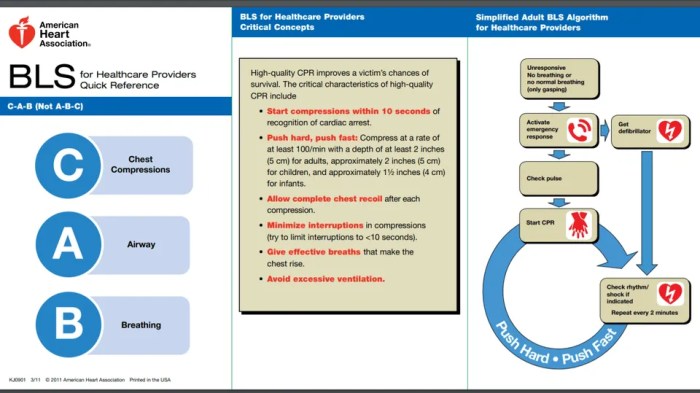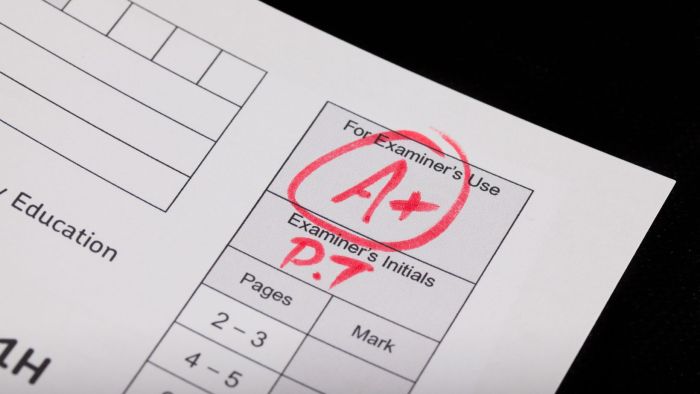Prepare yourself for success with our comprehensive guide to the ACLS Final Exam Answers 2023. This meticulously crafted resource will empower you with the knowledge and strategies to ace your exam and demonstrate your proficiency in Advanced Cardiovascular Life Support.
Our team of experts has carefully analyzed the exam structure and content, identified key topics, and compiled a wealth of study resources to help you excel.
Exam Structure and Content
The ACLS Final Exam is a comprehensive assessment designed to evaluate your knowledge and skills in advanced cardiac life support. The exam consists of multiple-choice questions, true/false questions, and scenario-based questions.
The exam is divided into three sections: airway management, cardiac arrhythmias, and pharmacology. The airway management section covers topics such as airway assessment, bag-valve-mask ventilation, and endotracheal intubation. The cardiac arrhythmias section covers topics such as ECG interpretation, defibrillation, and cardioversion.
The pharmacology section covers topics such as antiarrhythmic drugs, vasopressors, and inotropes.
Exam Format
- 100 multiple-choice questions
- 25 true/false questions
- 10 scenario-based questions
Exam Duration
The exam is 3 hours long.
Topics Covered
- Airway management
- Cardiac arrhythmias
- Pharmacology
Specific Areas of Focus
The exam will focus on the following areas:
- Recognition and management of life-threatening arrhythmias
- Effective airway management techniques
- Pharmacological interventions for cardiac emergencies
Study Resources

To prepare effectively for the ACLS final exam, it is crucial to utilize a combination of high-quality textbooks, study guides, and online resources. These materials provide comprehensive coverage of the exam’s content, enhance understanding, and reinforce concepts through practice questions and simulations.
Recommended Textbooks and Study Guides
- ACLS Manual, American Heart Association (AHA)
- ACLS Study Guide, American Red Cross
- ACLS: Principles and Practice, 5th Edition, Barbara Aehlert
Online Resources and Forums
In addition to traditional study materials, numerous online resources and forums can supplement your preparation. These platforms offer interactive discussions, quizzes, and simulations that facilitate collaborative learning and reinforce concepts.
- American Heart Association ACLS website
- American Red Cross ACLS online resources
- ACLS Study Forums (e.g., Medscape, ACLS Nation)
Effective Study Techniques
To maximize your study efforts, consider implementing the following effective techniques:
- Active Reading:Engage actively with the study materials, highlighting key concepts, taking notes, and summarizing sections.
- Spaced Repetition:Review material at increasing intervals (e.g., 1 hour, 1 day, 1 week) to strengthen memory retention.
- Practice Questions:Regularly solve practice questions and simulations to test your understanding and identify areas for improvement.
- Collaborative Learning:Discuss concepts and solve problems with peers or join study groups to enhance comprehension.
Answering Techniques
To achieve success in your ACLS final exam, it’s crucial to employ effective answering techniques. These strategies will guide you in tackling various question types, managing your time efficiently, and presenting well-organized, concise responses.
First and foremost, familiarize yourself with the different types of questions you may encounter. Multiple-choice questions test your ability to identify the correct answer from a set of options. True/false questions require you to determine the validity of a statement.
Short-answer questions ask you to provide a brief explanation or definition. Essay questions challenge you to demonstrate your understanding of a broader topic through written analysis.
Time management is of utmost importance. Allocate your time wisely, ensuring you spend an appropriate amount on each question. Prioritize answering questions you are confident in first. If you encounter a particularly challenging question, don’t get stuck on it. Move on to the next question and return to it later if time permits.
When answering questions, clarity and conciseness are key. Provide clear, concise responses that directly address the question asked. Avoid rambling or providing unnecessary details. Use specific examples or data to support your answers, ensuring your responses are evidence-based and well-reasoned.
Multiple-Choice Questions
When faced with multiple-choice questions, carefully read the question and all answer choices. Eliminate any options that are clearly incorrect. If you are unsure between two or more options, consider the context of the question and the overall topic being tested.
True/False Questions
For true/false questions, carefully evaluate the statement presented. Determine if it is entirely true or entirely false. If the statement is partially true or partially false, it should be considered false.
Short-Answer Questions
Short-answer questions require concise, specific responses. Ensure your answers are directly relevant to the question asked. Use s from the question in your response to demonstrate your understanding.
Essay Questions
Essay questions provide an opportunity to demonstrate your comprehensive understanding of a topic. Begin by creating an Artikel to organize your thoughts. Your response should have a clear introduction, body paragraphs that support your main points, and a concluding paragraph that summarizes your key arguments.
Specific Topics

The ACLS exam covers a wide range of topics related to cardiovascular emergencies. Key topics include:
- Recognition and management of cardiac arrest
- Use of automated external defibrillators (AEDs)
- Advanced airway management
- Pharmacology for cardiac emergencies
- Post-resuscitation care
Some particularly challenging or important areas include:
Recognition and Management of Cardiac Arrest
- Identifying the signs and symptoms of cardiac arrest
- Performing high-quality CPR
- Using an AED
- Administering epinephrine and other medications
Advanced Airway Management
- Inserting and maintaining an endotracheal tube
- Performing bag-valve-mask ventilation
- Managing difficult airways
Pharmacology for Cardiac Emergencies
- Understanding the indications and contraindications for each medication
- Calculating dosages and administering medications safely
- Recognizing and managing side effects
Post-Resuscitation Care, Acls final exam answers 2023
- Monitoring and managing the patient after cardiac arrest
- Preventing complications
- Providing emotional support to the patient and family
Sample Questions and Answers: Acls Final Exam Answers 2023
This section provides a table with sample exam questions and model answers, along with detailed explanations and potential variations.
While preparing for the ACLS final exam answers 2023, you might need a break. Why not listen to the soothing melody of “Caro Mio Ben”? Check out caro mio ben english lyrics for the full song. Afterward, you can return refreshed and focused on acing those ACLS final exam answers 2023.
ECG Interpretation
ECG interpretation is a crucial skill in ACLS. Here are some sample questions and answers:
| Question | Answer | Explanation |
|---|---|---|
| Identify the rhythm in the ECG. | Sinus tachycardia | Regular P waves preceding each QRS complex, heart rate 110 bpm |
| What is the QRS duration? | 100 ms | Measured from the beginning of the QRS complex to the end of the S wave |
| Is there any evidence of ischemia? | No | No ST-segment elevation or depression |
Pharmacology
Pharmacology is another important aspect of ACLS. Here are some sample questions and answers:
| Question | Answer | Explanation |
|---|---|---|
| What is the recommended dose of epinephrine for cardiac arrest? | 1 mg every 3-5 minutes | IV or IO |
| What is the mechanism of action of amiodarone? | Class III antiarrhythmic | Prolongs the action potential duration |
| What are the potential side effects of vasopressin? | Vasoconstriction, hypertension | Use with caution in patients with hypertension or coronary artery disease |
Practice Exercises
Enhance your ACLS exam preparation with a comprehensive list of practice exercises and mock exams. These resources provide an invaluable opportunity to test your knowledge, identify areas for improvement, and boost your confidence.
To access and complete the exercises, refer to the following resources:
- American Heart Association (AHA):The AHA offers a range of practice exams and simulations on its website. Visit the AHA website for details.
- American Red Cross:The Red Cross provides online and in-person practice sessions. Visit the Red Cross website for more information.
- Online Practice Tests:Various websites offer free and paid practice tests. Search for “ACLS practice tests” to find reputable sources.
After completing the practice exercises, engage in self-assessment to evaluate your strengths and weaknesses. Focus on areas where you may need additional review or practice. Repeat the process until you feel confident in your knowledge and skills.
FAQ Insights
What is the format of the ACLS Final Exam?
The exam typically consists of multiple-choice questions, true/false questions, and short answer questions.
How long is the ACLS Final Exam?
The exam is usually 2-3 hours long.
What topics are covered on the ACLS Final Exam?
The exam covers a wide range of topics related to ACLS, including cardiac arrest management, airway management, pharmacology, and more.